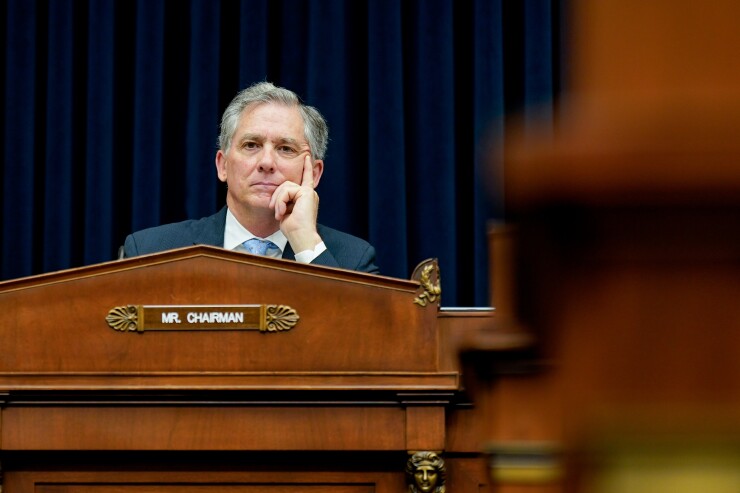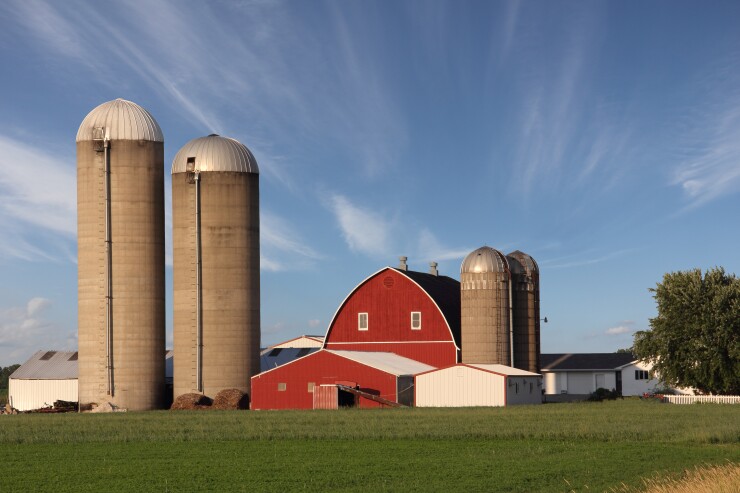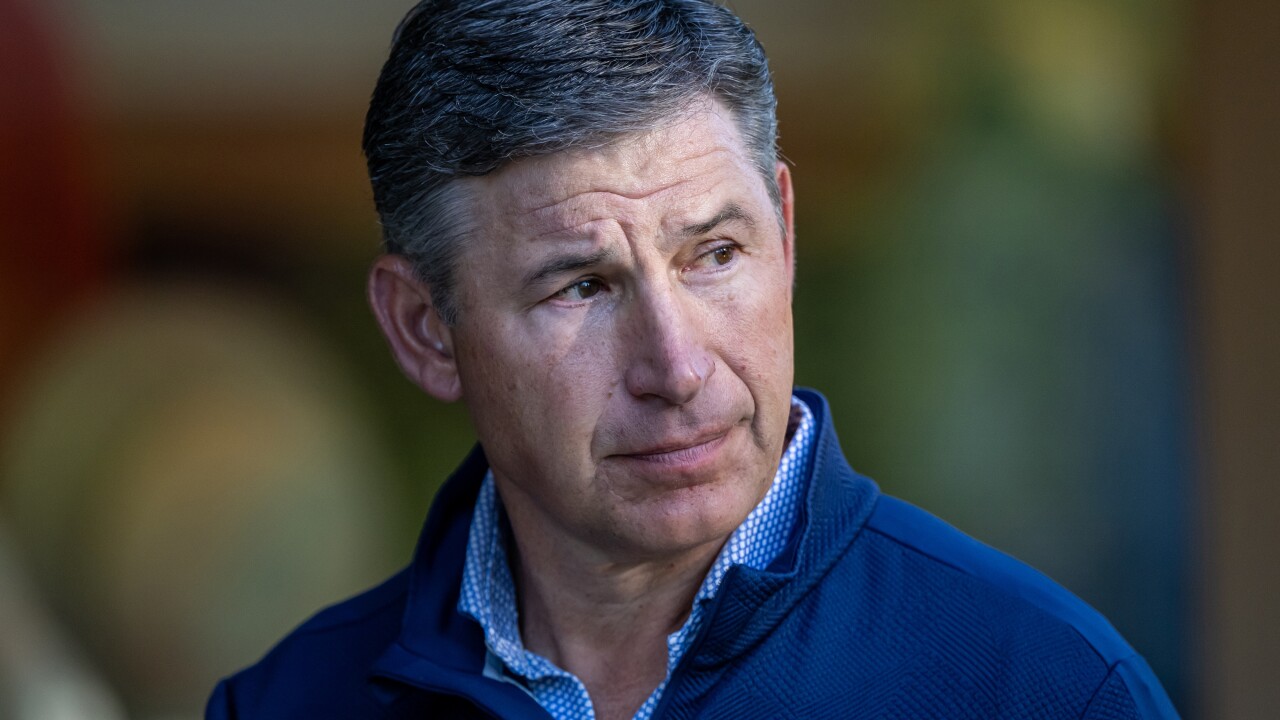- Key insight: The government is likely to reopen soon, and programs that help small banks will restart.
- Forward look: Expect Small Business Administration difficulties to show up in bank balance sheets throughout Q1.
- What's at stake: Billions of dollars of loan guarantees and other programs paused during the shutdown.
WASHINGTON — The Senate passed a bill to end the government shutdown — the longest in U.S. history to date — on Tuesday, sending the measure to the House, where a vote is expected Wednesday morning.
The Senate version passed with seven Democrats and Sen. Angus King, I-Maine, voting in favor. Sen. Rand Paul, a Republican from Kentucky, voted against the measure.
Broadly, the bill would reverse the more than 4,000 layoffs within the federal government that the Trump administration issued during the shutdown. It would also delay further federal layoffs until January 30 and would appropriate funding for the Supplemental Nutritional Assistance Program Program — also known as food stamps — through September. It does not extend health care subsidies, the lapse of which will cause health care costs to increase for many low-to-middle income families.
For bankers, the shutdown proved to be mostly a non-event. Bank regulators are funded outside of the congressional appropriations process and markets largely shrugged off the Washington drama. An extended shutdown would eventually have an impact on markets and bankers, but even the longest one so far didn't hit most banks' balance sheets.
There are a few programs that were tabled during the shutdown that impact banks, however — particularly the smallest ones — and their resumption will benefit those banks. And with the government's short-term funding squared away, Congress can resume taking up important legislation.
Here's the top policy issues that affected bankers during the shutdown, and how they're being resolved now that it's coming to an end.
CDFI Fund

The Senate compromise on the shutdown includes language to reverse firings by the Trump administration during the last 41 days. That includes layoffs at the Treasury Department, including the
The fund has been under attack during the administration, with President Trump issuing an
Although the program has received bipartisan support in Congress for years, and has had
While the compromise funding bill temporarily reinstates the CDFI workers, there's every indication that OMB and the White House will continue to try to find ways to dissolve or minimize the fund to whatever extent they can.
House is back

Big ticket items for bankers had to take a backseat during the shutdown as House Speaker Mike Johnson refused to call Republican members of the lower chamber back to Washington until the Senate agreed to a compromise.
Now that it's almost back to typical business, bankers can expect the House and Senate to make moves on crypto
The House Financial Services Committee rescheduled its long-postponed deposit insurance reform hearing for next Wednesday. House Financial Services Committee Chairman French Hill is expected to be sympathetic to most community bankers' concerns during the hearing and ongoing negotiations with the Senate and its version of a reform bill, which some small bankers thought raised the FDIC limit for noninterest bearing business accounts by
Other community bankers, including the groups' lobbying organization, the Independent Community Bankers of America, have signed off on the Senate bill, meaning the House might be under pressure to pass the Senate bill without revision.
Farm lending

Farm lending can pick back up, with fully reopened county offices available to sign off on farmer sales that were otherwise holding up bank loans for the sector.
The shutdown happened at a particularly bad time for farmers. Harvests came in and animals like cattle needed to be sold in the last couple months, putting farmers in a holding pattern trying to get sign-offs at USDA Farm Service Agency offices held up a critical piece of paperwork for those farmers to then go to their banks and get crucial funding for next year.
Once the House passes the legislation and President Trump signs it, full FSA operations should resume, though a significant backlog of applications and loan closings awaits processing. Banks in rural areas that serve farm communities should be able to get back up to speed in the next few months, but further delays could be costly.
SBA lending

Big backlogs remain at the Small Business Administration lending programs.
Small and even some midsized banks have experienced
Now that the programs are gearing back up, analysts expect those banks to make up that activity in the late fourth quarter or first quarter of next year, but it'll continue to impact SBA-heavy lenders at least that long.




